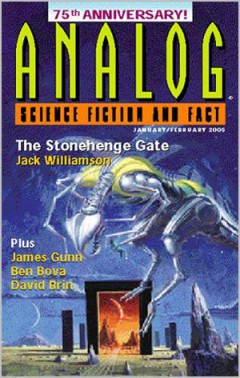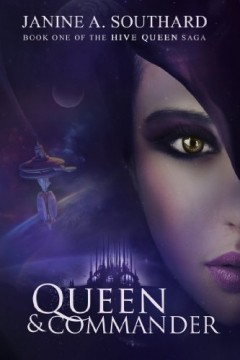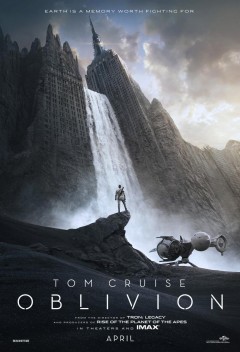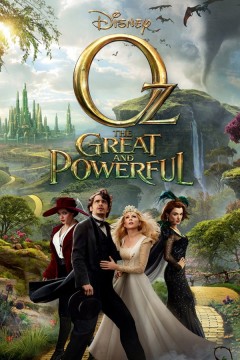
If you’ve ever wanted a peek inside the mindset of the utilitarian pragmatist and unabashedly statist, then you would do well to read or listen to David Brin’s novelette “Mars Opposition.” Begun in 2003 with the launch of the Mars Exploration Rover Mission (MER), and originally published in Analog in January 2005, “Mars Opposition” has been republished in audio format in episode 298 of StarShipSofa (free). It is a well-written tale, though predictable and unsubtle, and is superbly narrated by Dave Robison. Unfortunately, Brin uses the story as a vehicle for riding some of his political hobbyhorses:
- defending government and its officials from antigovernment criticism,
- making government smarter with the help of the technocratic elite (such as himself),
- and smearing libertarians as dogmatic, asocial creatures who are clueless about the human condition.
Fair warning, what follows is spoiler-ridden.
“Mars Opposition” opens at Cape Canaveral with the landing of a strange spaceship. What follows is an even stranger first contact with 50-odd beings who claim to be Martians. They each bear a long list of human names and offer payment in exchange for being given the location of one person on the list. When one of these people — Bruce Murray, one of the founders of the Mars Planetary Society — happens to be present, the Martian looking for him promptly walks over and “shoots him dead.” Before long, the Martians are scattering in all directions, each hunting for the next name on their list.
Why are Martians killing these people who all happen to be space enthusiasts? The unidentified narrator (from here on referring to the POV character, not Dave Robison) eventually figures everything out and explains it to us as events unfold. As fresh and interesting as this take on a first contact story is, I won’t dwell on it and will instead turn to examining Brin’s political message.
Brin himself describes “Mars Opposition” as a creepy campfire tale. That would make the Martians the boogeymen of the story. And the Martians — the boogeymen — are, as the narrator calls them at the end, ultimate libertarians.
[continue reading…]
Help Promote Prometheus Unbound by Sharing this Post

Debut author Janine Southard has come out with Queen & Commander. It is the first book in what is planned to be a series for young adults. A science fiction tale, its focus on relationships brings what some might consider a feminine touch to the only fiction genre with more male than female readers. I found it to be an enjoyable read, even if it was aimed at an audience younger than I.
The story starts on a colony world in “Welsh space.” In this world, students are tested and assigned to positions in society based on their results. The highest position is attainable only by women — that of queen. A queen is roughly the equivalent of a naval captain or admiral. She takes command of a space vessel whose all-male crew pledges eternal devotion to her, in return for which she is duty-bound to them.
One online reviewer referred to this as a “fantastic feminist angle.” I find this odd, since feminists invariably swear that feminism is about equality, which would make it an antifeminist angle. Perhaps someone has slipped and given the game away?
At any rate, Rhiannon, the main character, is given the task of being queen and commander. Her best friend is distraught over the prospect of being separated from her true love after graduation. They turn to Rhiannon to help keep them together, and Rhiannon, though she feels a foreboding, cannot deny her best friend anything. In order to help them, she takes them both on as part of her crew, despite the fact that no other woman can serve under a queen (the excuse being that the presence of another female could sow discord and distract the men from their devotion).
[continue reading…]
Help Promote Prometheus Unbound by Sharing this Post

Warm Bodies, based on a novel by Isaac Marion that I haven’t read, is a modern take on Romeo and Juliet, only this time Juliet meets and falls in love with Romeo after he’s already dead. It is a tale about the power of love to induce positive change and tear down walls even in trying times — of learning to see others as individuals, looking past their superficial group characteristics, and recognizing, even accepting, differences. But all is not moonlight and roses. Life, if one can call it that, among the living and the dead is hard; and even in the end, one cannot eschew entirely a hardnosed realism, as there are some too far gone even for love to heal.
Julie, played by Aussie Teresa Palmer, is the daughter of the military leader (John Malkovich) of an authoritarian, walled compound that houses perhaps the last remaining settlement of living human beings. R, played by Nicholas Hoult, is a zombie who spends his days wandering aimlessly around an airport and occasionally feasting on the flesh of the living. He’s a little off as far as zombies go, in ways you’ll have to see for yourself.
The two meet one fateful day when Julie is out on a pharma-salvage mission with a group of her peers and R is leading a pack of zombies in a hunt for their next meal. Can these two star-crossed lovers make it work? Will the living give R a chance before putting a bullet in his brain? Will R’s fellow undead refrain from eating Julie’s?
[continue reading…]
Help Promote Prometheus Unbound by Sharing this Post

Tatiana Maslany as Alison, Helena, Sarah, Beth, Cosima, and Katja.
Orphan Black is a new science fiction television show produced by BBC America and Space, starring Canadian actress Tatiana Maslany. I recently discovered this series, the first season of which just finished airing in the beginning of June 2013, and I plowed through all 10 episodes in two days. It’s a smart, complex, often dark yet at times quite funny, and well-paced show with a continuous narrative arc that explores the issues of identity and intellectual property. There is fine acting all around but the two standouts are Tatiana Maslany, who plays many roles on the show for which she deservedly won a Critics’ Choice Television Award for Best Actress in a Drama Series, and Jordan Gavaris, who plays the foster brother of one of Maslany’s characters.
Minor spoilers follow, but everything I mention is revealed in the first episode or featured prominently in the official publicity for the show.
The science fiction element of the show is pretty low key. You won’t see much in the way of futuristic technology in this series. Instead, the plot revolves around the controversial subject of human cloning and the early stages of body modification and genetic engineering. Who are we if we are not biologically unique, if there are others out there who are genetically identical to us? How much would our experiences and personal choices shape who we become despite this? What would you do if you encountered to your surprise not one but two or three or more other people who look exactly like you? What is it that makes us human? These are some of the questions explored in Orphan Black.
The series begins by introducing us to the main character of the show, Sarah Manning, played by Maslany. Sarah is an orphan, born in Great Britain, raised by a foster mother, and moved to Canada at an early age. Now a young woman, we meet her trying to escape a wild life of crime, drugs, and an abusive boyfriend. Sarah aims to get her life back together, reclaim custody of her daughter Kira from her foster mother Mrs. S, and scrounge up enough money to make a new life somewhere for herself, her daughter, and her foster brother Felix (played by Gavaris).
[continue reading…]
Help Promote Prometheus Unbound by Sharing this Post

The other day I found myself watching a soccer game. The players were not very good: defenders were constantly out of position, midfielders of the same team were bunching together and stealing the ball from each other, few passes were completed, and those that were often gave the impression of being accidental. Once, the goalie was even caught standing inside the goal when one team took a shot. Fortunately for them, the shot went well wide of the mark, despite the fact that it was taken a mere ten feet from the mouth of the goal.
Notwithstanding the poor level of play, I was enraptured. I cheered, I groaned, I shouted encouragement. I never missed a second of the action. What is more, I had just as eagerly watched the 30-minute practice that had preceded the game. The reason for my enthusiasm was that one of the players was my four-year-old son. There is a lesson there for storytellers of all stripes.
Oblivion is the second opus of director Joseph Kosinski, who also gave us Tron. It is a perfectly average movie on net, with some attributes rising a little above and others sinking a bit below. Of all the changes one might suggest to improve the film, the single most important one would be to populate it with characters we care about. The same thing that turned an hour and fifteen minutes of abject boredom into an engaging experience on a small soccer field in central Ohio would have dramatically improved every single scene of Kosinski’s work.
[continue reading…]
Help Promote Prometheus Unbound by Sharing this Post
The Android’s Dream, a novel by John Scalzi, is a science fiction tale that takes place in the not too proximate future. This was my first experience with Mr. Scalzi, and I came away impressed enough to want to read other titles by him that have garnered more acclaim. There are a variety of different tones and elements in the present novel, in use of which Scalzi demonstrates talent. He can be funny, clever, action-oriented, and even, on occasion and to a small degree, poignant. I was not always convinced by the way he mixed these different tones together, but overall the novel was a fun read. Scalzi exhibits the flair of a true storyteller with his well-refined and polished plot and cast of diverse characters.
The title refers to a line of specially bred sheep, named in honor of Philip K. Dick one supposes, which become the object of a hunt to prevent an intergalactic war. When a group of men of varying interests conspire to insult an alien diplomat during trade negotiations, the blowback leaves Earth on the brink of war. As things get increasingly out of hand — to the point where even the original conspirators begin to doubt the course they have plotted — an agent of the American government must find an Android’s Dream sheep to offer to the aliens, as appeasement, so they can sacrifice it in an important ceremony.
I do not know whether or not Scalzi has written sequels or other novels in this world, or if he plans to, but he has a knack for world creation that would seem to leave a lot of room for future work in this universe. There are different alien species with odd customs and cultures, eccentric politics, a variety of characters, and a number of odd social developments (including a religion devoted to Evolved Sheep whose adherents belong to one of two categories: true believers, and those with a sense of humor who want to make the Church’s prophesies come true for the fun of it). The message is not profound and the characters are not explored in the kind of depth that makes them stick with you long after you have closed the book for the last time, but the story is coherent, moves well, and provides a few interesting twists that give it a little kick at the right time.
[continue reading…]
Help Promote Prometheus Unbound by Sharing this Post


It seems that every classic is to have an entourage. The loneliness of such films as Alien, Star Wars, and King Kong is too much to bear for the hearts of movie execs, so companions are made for them. Sequels, prequels, remakes, and spinoffs are what Hollywood does most, though not necessarily best. At times, this proclivity has born sweet fruit. Though sequels are rarely as good as the original, if the original was any good at all, there have been some smashing successes. Even remakes have some achievements to be noted. I am, however, unaware of a prequel or a spinoff whose makers could hold their heads high and proud once their creation hit the silver screen. Oz the Great and Powerful, a prequel to the 1939 classic The Wizard of Oz, is unable to break out of this trend and be the first.
Set some years before the events of Victor Fleming’s work, it tells the tale of the wizard himself, a travelling magician from Kansas making a meager, day-to-day living. A magician is a trickster, of sorts, and Oscar Diggs (James Franco) has a character well suited to it. Though one gets the sense that at his core he is not entirely amoral, he lies to friend and stranger alike. He lusts after money and women, whom he tricks for his own benefit.
It is this very duplicity in his nature that gets him running from trouble and sets him on course for Oz. After flirting with the wife of a circus strongman, he escapes the enraged husband in a hot air balloon just as a tornado begins to ravage the landscape. As happened in the original film to Dorothy, the tornado transports him to the magical Land of Oz. There, he meets Theodora, a witch played by Mila Kunis.
[continue reading…]
Help Promote Prometheus Unbound by Sharing this Post















